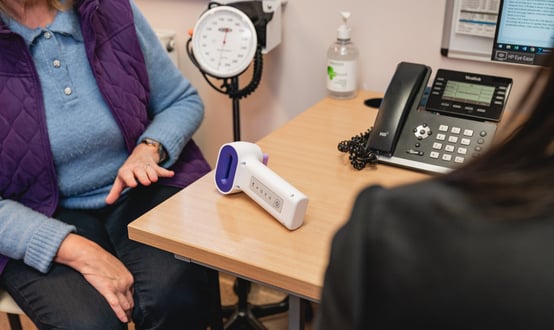Imperial College London explores use of digital twin heart models
- 10 May 2024

Researchers from Imperial College London are building digital twin heart models for a group of NHS patients with pulmonary arterial hypertension (PAH).
The project, funded by £8 million from the Engineering and Physical Sciences Research Council, will explore whether the use of digital twin heart models in NHS patient care pathways is feasible, scalable and affordable.
Starting from 1 October 2024, the project will initially recruit 100 patients from specialist PAH centres, including Imperial College Healthcare NHS Trust and Sheffield Teaching Hospitals.
PAH is a life-threatening cardiovascular disease which causes severe breathlessness, heart failure and recurrent hospitalisation.
Creating the digital twin involves designing and building a real-time virtual counterpart of a patient’s heart using health data, including medical records, hospital scans and information collected from wearable and implanted monitors.
These will be updated continuously over time by real-time data from either patient-implanted or wearable medical devices, allowing researchers to accurately and remotely track changes in the progression of a patient’s disease, as well as how they respond to treatments via the digital twin.
The project is being led by Professor Steven Niederer, chair of biomedical engineering at the National Heart and Lung Institute at Imperial College London, and co-director of digital twins at the Alan Turing Institute, working with the University of Sheffield and University of Nottingham.
“We want to use this technology to better forecast when patients are likely to feel better or worse, or likely to have a health problem, or when their medication is working and when it isn’t.
“We hope it will allow us to be more receptive and responsive while also reassuring this critically ill group of patients,” Professor Niederer said.
The interdisciplinary team for the research – which includes clinicians, engineers, computational statisticians and research engineers – will evaluate the usability and accuracy of the digital twins.
Professor Niederer added: “We believe this is the first time scientists are investigating and trialing the use of digital twin technology for the NHS for a real patient group, as a reasonable scale, and evaluating whether it will provide better care.”
Recruitment to the project is expected to take 18 months, which will be followed by at least 42 months in which the digital twin will be trained. Following this, additional patients may be recruited for testing, according to Imperial College London.
In 2022 Strasys and Silico teamed up to deliver digital twins of entire hospitals and healthcare systems to support decision intelligence.



